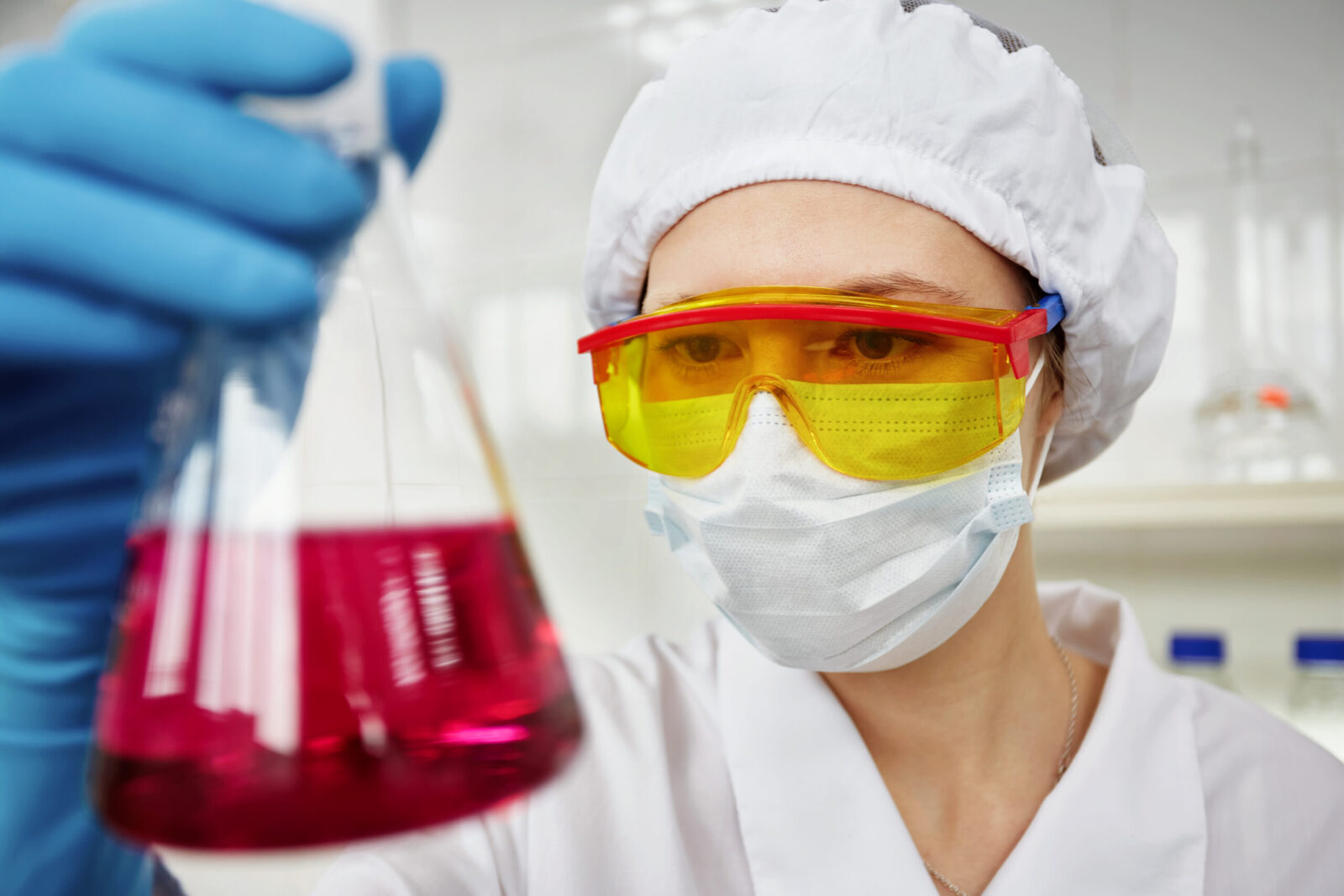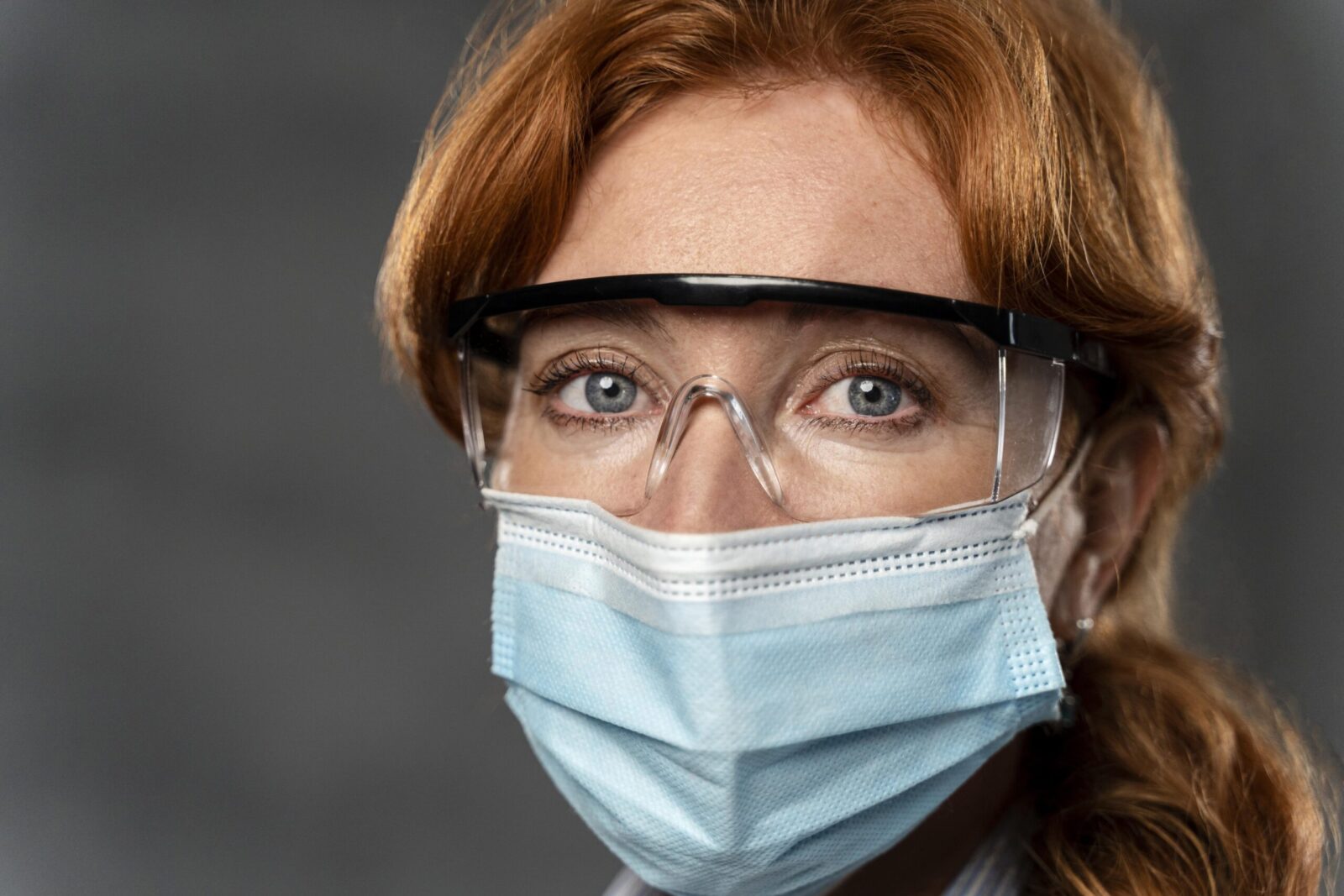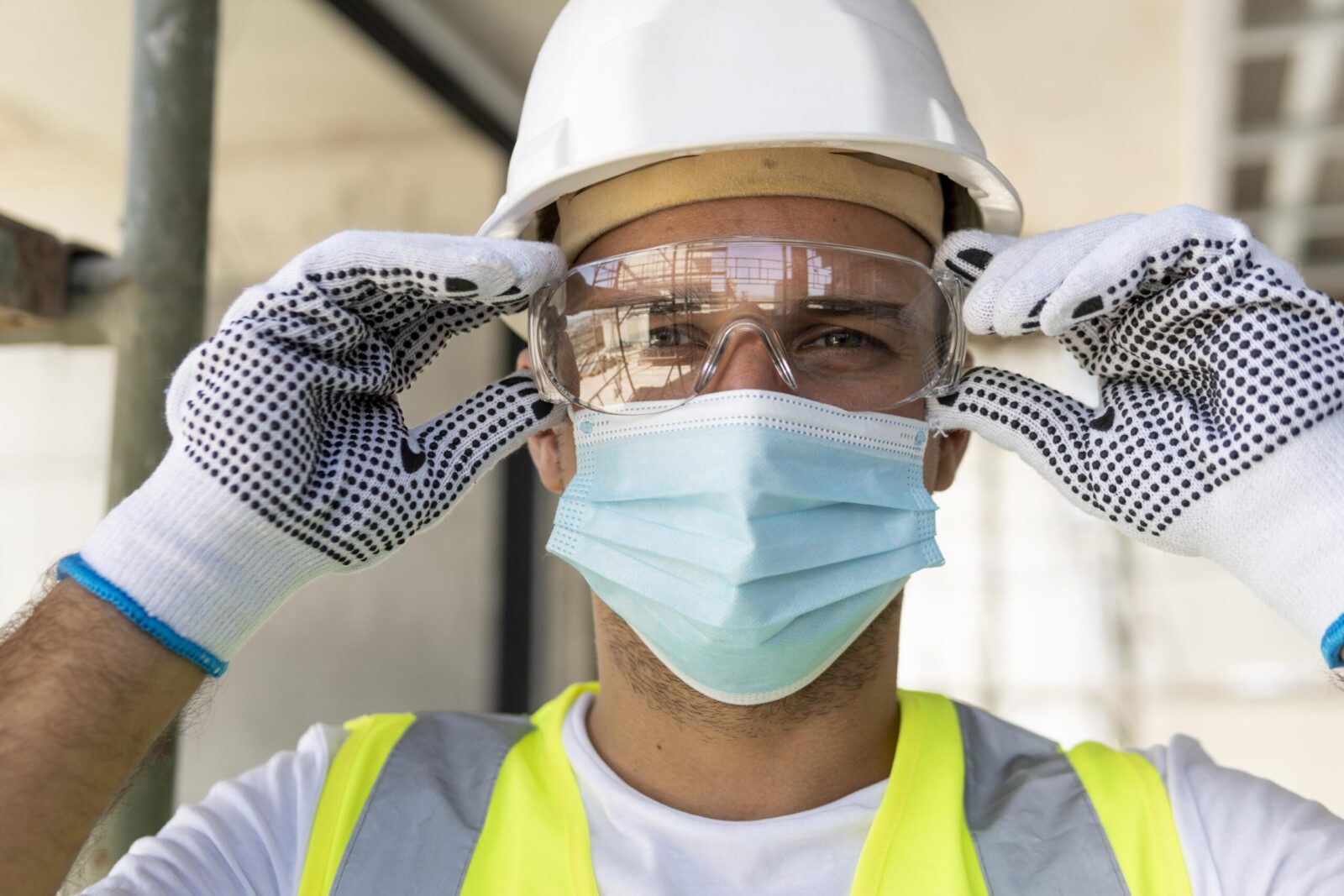
Essential PPE in the Food Industry: What You Need to Know
Overwhelmed by PPE options for food safety? Master your PPE selection for food workers safety with these practical tips.

Get 20€ off on your first order!
Finding the right safety glasses for your chemistry lab doesn’t have to be complicated. This guide will help you identify the best options by focusing on key factors like safety standards, fit, lens materials, and special features.
By the end, you’ll have all the information needed to confidently choose protective eyewear that fits your needs and keeps you comfortable during lab work.
With clear, practical advice and tailored recommendations, we make it easy to select safety glasses that meet professional standards while offering lasting durability and performance.
Once you’ve chosen your eyewear, we’ll also guide you through the next steps in lab safety, such as complementary protective gear and maintenance tips.
For a comprehensive overview, explore our main article on safety glasses.
Ensure the safety glasses meet European standards, such as EN 166, for reliable and comprehensive protection tailored to laboratory needs. This certification guarantees that the eyewear meets rigorous safety criteria, including resistance to chemical splashes and impact. Learn more about the EN 166 standard on reputable sources like Wikipedia.
Proper fit is essential for effectiveness. Look for features like adjustable nose pads, flexible arms, and lightweight materials to enhance comfort during prolonged lab work and ensure a secure fit. For those who wear prescription glasses, opt for over-glasses safety goggles or custom prescription safety eyewear.
Choose polycarbonate lenses for superior impact resistance, as they are lightweight, shatterproof, and safer than glass or acrylic alternatives. Anti-fog and anti-scratch coatings are also essential, especially in environments with varying temperatures or humidity.
| Type | Features | Best For |
| Standard Safety Glasses | Lightweight, basic protection | Low-risk lab work |
| Chemical Splash Goggles | Enclosed design, protects against splashes | Handling liquids and chemicals |
| Prescription Safety Glasses | Custom lenses for vision correction | Individuals with visual impairments |
For a detailed comparison, visit our safety glasses product category.
Consider extra features that enhance the functionality and comfort of your safety glasses. Anti-fog coatings, UV protection, and durable materials can significantly improve your protection and ensure that the eyewear lasts longer under the demanding conditions of a chemistry lab.
Proper maintenance of your safety glasses is essential to prolong their lifespan and maintain clear vision. Regular cleaning, proper storage, and timely inspection will ensure they continue to provide effective protection in the lab.

While focusing on eye protection, consider complementary PPE, such as:
For additional insights, check out related guides like How To Choose The Right Face Shields – A Buyer’s Guide.
Choosing the wrong safety glasses can compromise your eye protection and comfort in the lab. Be mindful of factors such as standards compliance, the suitability of the eyewear for your specific tasks, and the comfort of the fit to ensure effective and consistent use.
Explore our range of safety glasses to find the perfect pair for your chemistry lab. Ensure safety, comfort, and compliance with every choice you make.
We hope this guide has provided you with the key insights needed to confidently choose the best safety glasses for your chemistry lab, from understanding safety standards to identifying the right features for your specific tasks. Whether you’re conducting experiments in an educational setting or managing safety in professional labs, we’re here to support your needs.
Explore the full range of Safety Glasses on Droppe, where trusted brands and reliable options are just a click away.
For a broader understanding, visit our main safety glasses buying guide, where you can explore comprehensive details about features, standards, and maintenance tips.
Have questions or need personalized advice to find the perfect safety glasses? Don’t hesitate to reach out—we’re always here to help you prioritize safety, comfort, and compliance in every choice you make.
– The Droppe Team
Yes, safety glasses are reusable as long as they are properly maintained and show no signs of damage or wear.
Many models include UV protection. Check the product specifications to ensure this feature if needed.
Use a microfiber cloth and a cleaning solution designed for lenses to avoid scratches and maintain clarity.
While they don’t have a strict expiration date, replace them if they become scratched, damaged, or lose their protective coatings.
Goggles provide a sealed design for full splash protection, while safety glasses are better for general impact resistance and comfort.
Thank you! You've signed up for our newsletter.



















Overwhelmed by PPE options for food safety? Master your PPE selection for food workers safety with these practical tips.

Struggling to maintain clear vision in demanding environments? This guide is here to help. By the end, you’ll know exactly...

Electricians across Europe face unique challenges that require reliable safety glasses to ensure both protection and efficiency. Whether safeguarding against...

Overwhelmed by PPE options for food safety? Master your PPE selection for food workers safety with these practical tips.

Struggling to maintain clear vision in demanding environments? This guide is here to help. By the end, you’ll know exactly...

Electricians across Europe face unique challenges that require reliable safety glasses to ensure both protection and efficiency. Whether safeguarding against...
Get 10€ off on your first order!
Save 30% by buying directly from brands, and get an extra 10€ off orders over €100
Save 30% by buying directly form brands, and get an extra 10€ off orders over €100